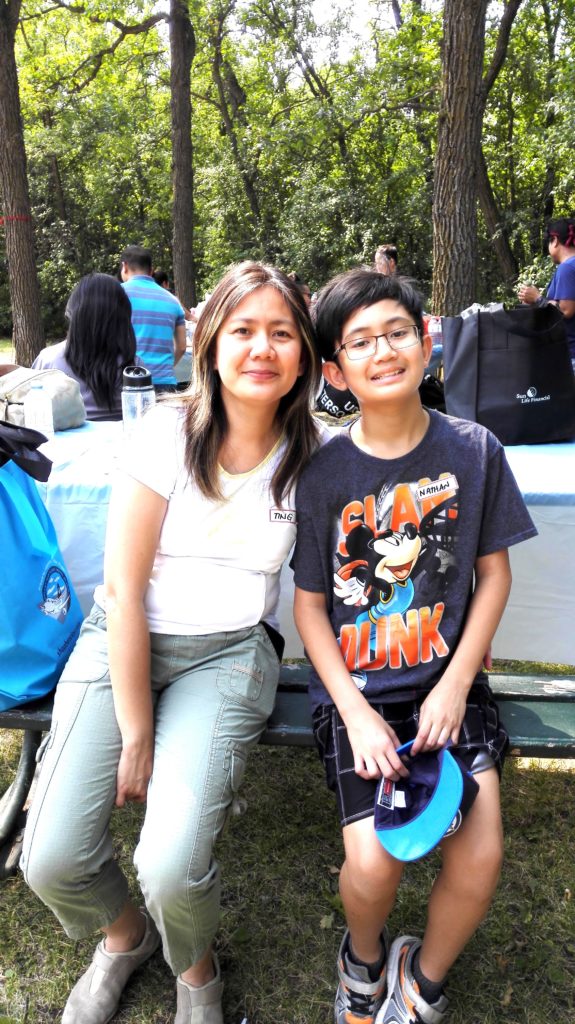Canada 101: Integration tips for Filipino newcomers
Immigrant Ting Mallari, a mortgage professional, says: “Learn, relearn, unlearn.” INQUIRER/Isabel Buenaobra
WINNIPEG, Manitoba — Since 2014, the Philippines has become the top source country for immigration to Manitoba. Other source countries are India, China, Nigeria, Eritrea, Korea, Israel, Somalia, Ukraine and Russia. One of Canada’s main attractions is its multicultural policy which was officially declared in 1971.
Through multiculturalism, Canada recognizes the potential of all Canadians, encourages them to integrate into their society and take an active part in its social, cultural, economic and political affairs.
However, while Canada affirms this policy, there is a need for newcomers and immigrants to understand Canadian culture for better integration into society and workplace. So what are some useful tips for Filipino newcomers to Canada?
Canada is not the U.S.
First, Canada is not the United States of America. Although both countries are characteristically individualistic and “low-context” cultures, there are differences in attitudes and temperaments, language nuances, spelling of words and even greetings.
In Canada, there are two official languages (English and French), labor is spelled labour, a CR is a washroom, a loonie is a Canadian dollar, (derived from the aquatic bird “loon” etched on a dollar), a toonie is a two-dollar coin, “eh” is ubiquitous in conversations, taxes are not included in prices (so don’t be surprised if you’re paying more than the price tag); there is a size 0 in clothing stores, and ice hockey is like basketball in the Philippines or football in the UK The people are polite.
Use cultural dimensions lens
Dutch researcher Geert Hofstede’s landmark study on the four (later five) cultural dimensions is utilized by Organizational Behaviour (OB) practitioners who maintain that cultural understanding/competency is important in a globalized economy. The book Culture and Organizations: Software of the Mind by Geert Hofstede, Gert Jan Hofstede and Michael Minkov describes these cultural dimensions. However, cultural dimensions should be viewed as tendencies and patterns and not characteristic of everyone in those countries.
The Filipino diaspora has enabled Filipinos to leave footprints in almost all countries in the world. However, Filipino traits such as resiliency and perseverance are not enough to enable them to better integrate in any society. An understanding of the different cultures and society’s expectations are important as well. Two of the dimensions most important to the society and the workplace will be described here: power distance and collectivism.
According to Hofstede, Filipinos accept a hierarchical order and inherent inequalities in society. Subordinates expect to be told what to do, and the ideal boss is a “benevolent autocrat.” That explains why most Filipinos adhere to patronage politics where a leader is revered when s/he provides benefits to voters, madaling lapitan (approachable), at pwedeng maging ninong/ninang sa binyag, kasal o kaya magbayad ng gastos sa libing (can be asked to be godparents in baptisms and weddings or to pay for funeral expenses). In addition, cultures which have high power distance are most often “high-contextz” cultures. There is a reliance on situational and nonverbal cues (official positions, status, family connections) when interacting with others. So if a Filipino is invited to an event or party and s/h responds with a “yes” or a “maybe,” the answer could really be a “no.”
Filipinos are collectivistic. They act in the interest of the group and not necessarily theirs. Hiring and promotions are influenced by groups that employees are affiliated with and family members get preferential treatment in businesses. Positive results of this characteristic is that Filipinos will take care of their families (even extended ones), will stay put in a job or position (even if unsatisfactory) because s/he supports the “extended” family. The downside to this characteristic is the cronyism and nepotism that can happen in the workplace, politics and businesses.
Ask for that raise or promotion; break the glass ceiling
To better integrate in the Canadian workplace, Filipinos are advised to: 1) be aware of the personal space valued by Canadians as it is a highly individualistic society; 2) be more open to accept and collaborate with employees who do not belong to their in-group; 3) be active in voicing their opinions and asking questions to clarify tasks; 4) do not hesitate to address supervisors by their first names; 5) be more direct in communication; 5) build rapport with employees of different ethnic origins; 6) maintain a work-life balance to avoid work-related stress and burnout; and 7) understand that Canadian employees value soft skills (communication skills, teamwork, and problem-solving) equally with efficiency and job efficacy. And last, but not the least, especially for women, do not be silent, ask for that raise or promotion, break the glass ceiling, you deserve it!
Learn, relearn, unlearn
Peejo Balinghasay, a psychology graduate in the Philippines, took up additional studies in human resources and management, which landed him a job. CONTRIBUTED
Ting Mallari, mortgage professional and Filipino immigrant who arrived in 2010, has additional advice to Filipino newcomers: Learn; relearn; unlearn. Learn the culture and embrace Canadian diversity and multiculturalism while maintaining Filipino cultural traditions (Tagalog is still the language spoken at their home). Relearn: don’t stop learning. Learn new skills and enroll in certificate programs (degrees in the Philippines are not enough to land you a job). , a graduate of BS Psychology from Southville International School and Colleges in the Philippines, took a human resources diploma and management certificate in the University of Winnipeg; this landed him a job as an HR practitioner.
Ting adds: unlearn the bad habits acquired back home. A perfect example would be unlearning the offensive driving and horn honking that folks are used to (traffic violation fines are expensive). Courtesy and politeness are the norm.
Volunteerism is valued
Canadians value volunteerism. Include that in your resume. Ting volunteered in schools as assistant teacher and teaching English as a second language in the Immigration Centre. Belonging to a church (Church of the Rock) and being active in an association (University of the Philippines Alumni and Associates in Manitoba) also provided her with the sense of belonging in her adopted country.
After years as an immigrant, Ting has no regrets coming to Canada. With no househelp to rely on, she became a hands-on mom and feels that the immigrant life has strengthened them as a family.
As for that “aha moment” on what specifically is different in Canada, she cites the weather as a major one. Winnipeg is not called “Winterpeg” for no reason. It could be harsh, as in -40 degrees, so newcomers are forewarned: winter is coming.
[email protected] |For comments, Email to : [email protected] – Contributor












